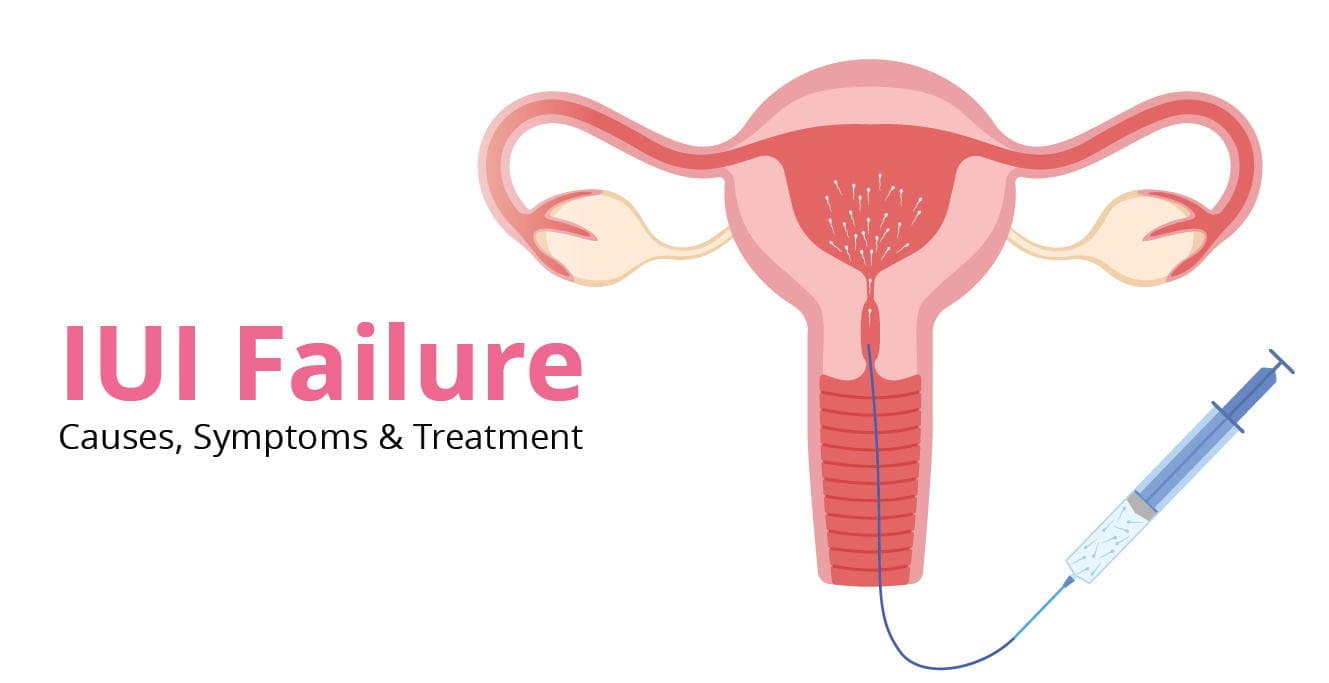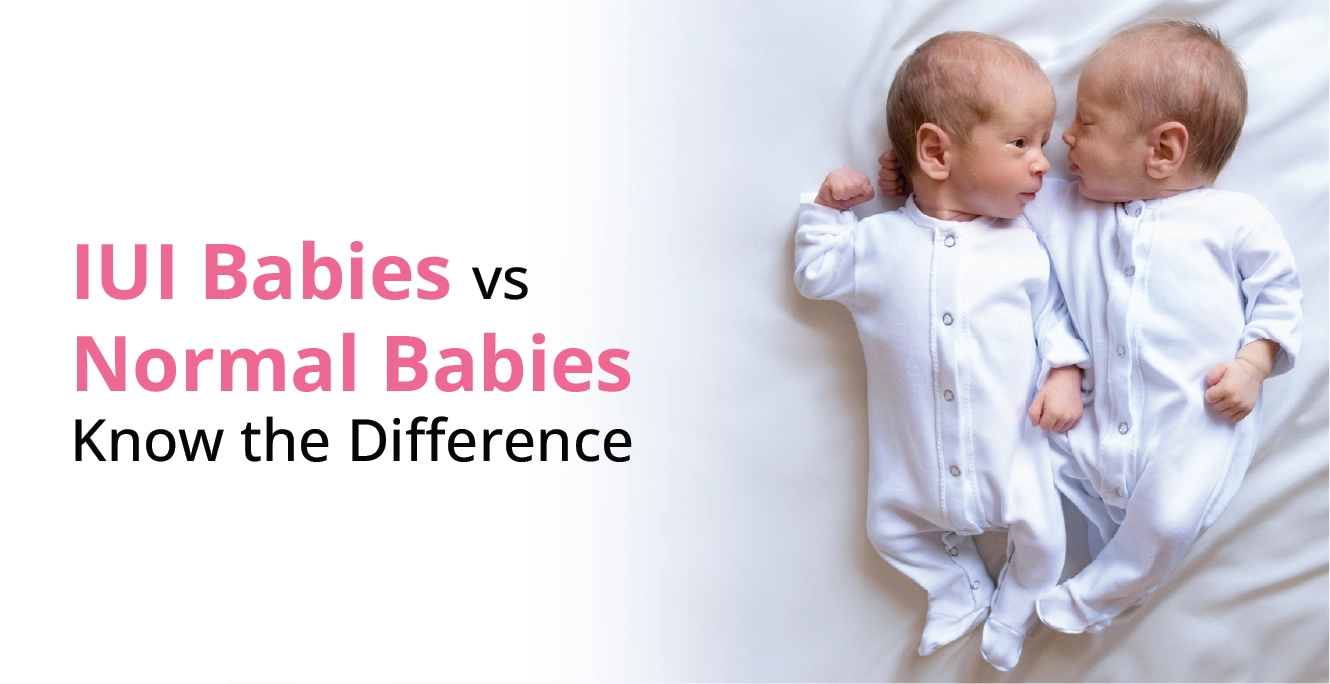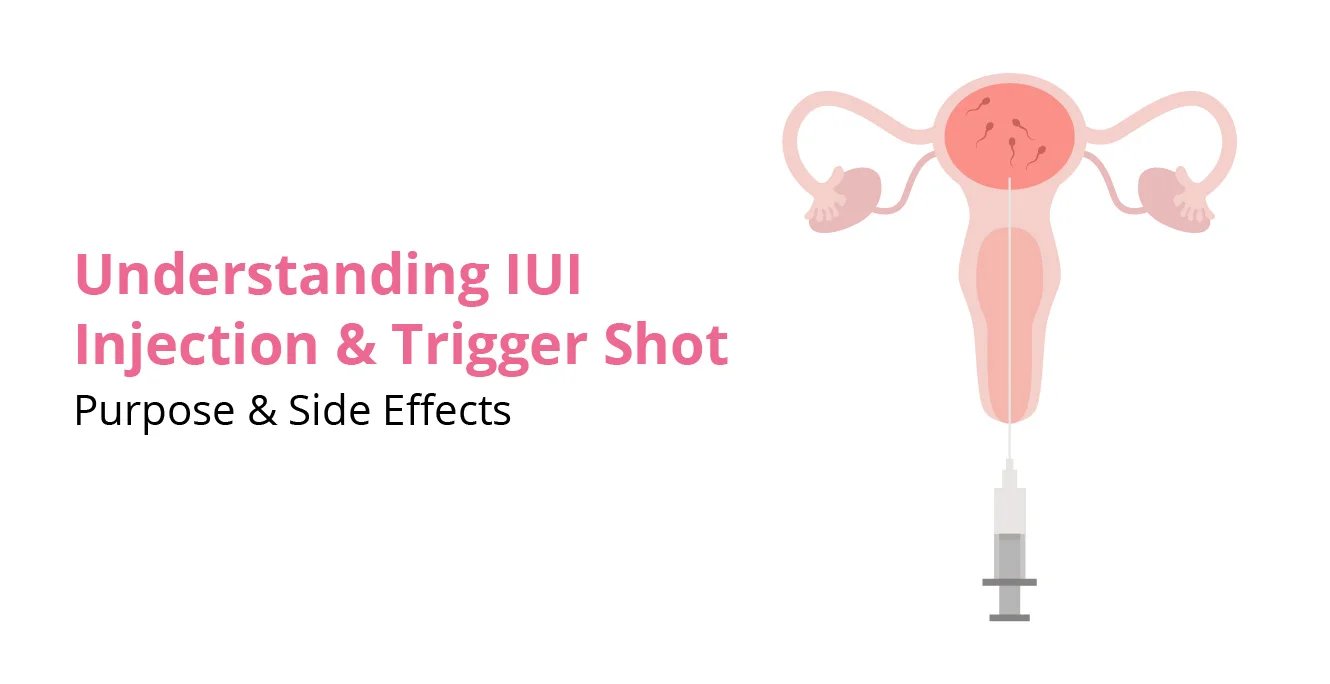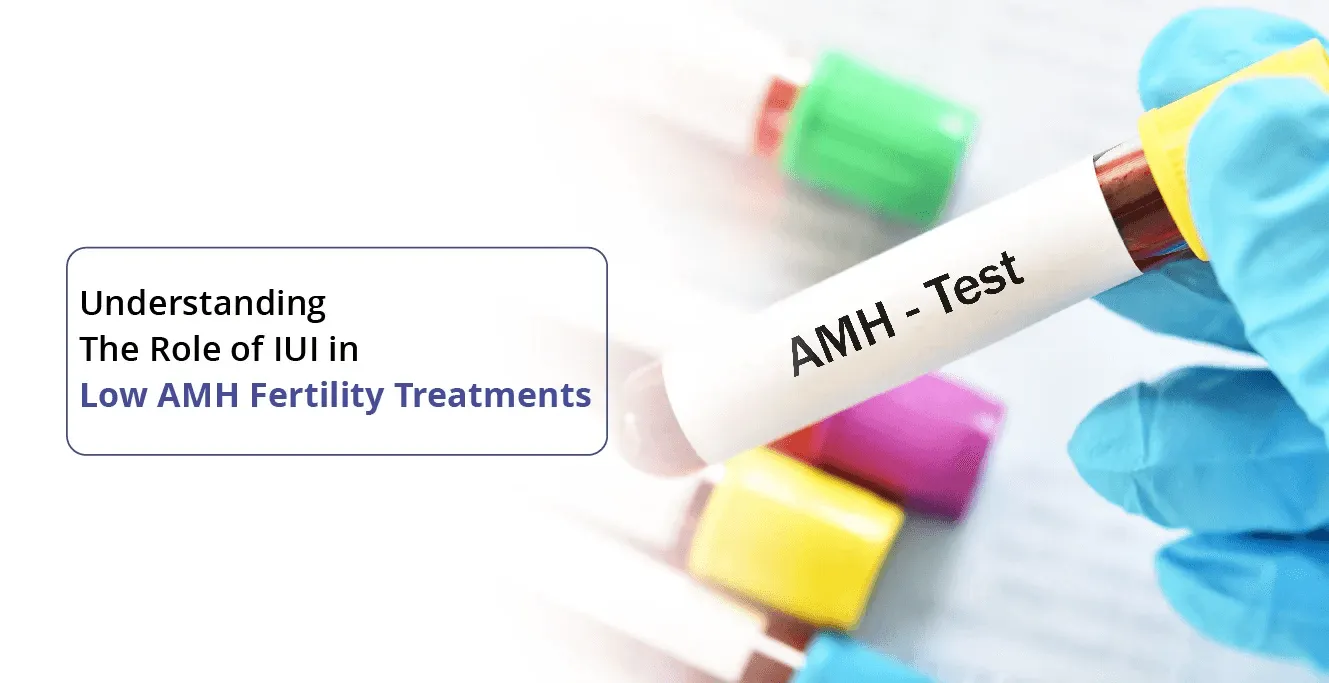
IUI failure: Causes, Symptoms & Treatment

Table of Contents
Key Takeaways
-
Watch out for the onset of menstruation, a negative pregnancy test, and the absence of pregnancy symptoms.
-
Factors contributing to IUI failure: poor sperm quality, ovulation issues, hormonal imbalances, uterine environment, and fallopian tube problems.
-
Consult your fertility specialist to analyze the reasons IUI did not work and consider alternative treatments like IVF or ICSI.
-
Necessary lifestyle modifications may derive success in subsequent attempts.
IUI Failure? Know the Reasons and the Next Steps
“Parenthood is a journey with ups and downs, and a failed IUI can feel discouraging. But it’s not the end—hope and options are still ahead. Patience and the right guidance can lead you forward.”
What is IUI?
Before you understand the reasons why IUI failed, let’s get an overview of what IUI is and what happens during this procedure.
Intrauterine Insemination (IUI) stands out as a minimally invasive option for couples who struggle to have children and is also less expensive than other advanced treatments like IVF. IUI serves as the first-line intervention for people dealing with problems of infertility. A specially prepared sperm is placed directly into the uterus as part of this procedure to improve the chances of pregnancy.
Facts About IUI Success Rates in India
While the data is limited on this, here are some general insights:
- Success Rates: The success rate of IUI varies, but generally about 90% of women who get pregnant through IUI do so within the first three cycles.
- Age Factor: Women over 35 years old with low ovarian reserve have lower success rates with IUI and may need to consider other fertility treatments.
|
Age Group (years) |
IUI Success Rate Per Cycle |
|---|---|
|
Under 35 |
10-20% |
| 35-40 | 10% |
|
Over 40 |
5% |
Reasons Why IUI Treatment Failed?
After undergoing an IUI, it typically takes 14 days to determine if the procedure was successful. Many factors impact the success and failure of this treatment. Some common causes of IUI failure include:
| Cause | Its Impact |
| Poor sperm quality | Low sperm count, motility (the ability of sperm to move), or morphology (the size and shape of sperm) can reduce the chances of fertilisation. |
| Poor quality of eggs | Eggs that are not healthy or of good quality can result in abnormal embryo development, increasing the risk of miscarriage or congenital disabilities. |
| Ovulation issues | Irregular ovulation or failure to ovulate can hinder the success of IUI. |
| Endometrial receptivity | Factors affecting the uterine lining can impact the implantation of a fertilised egg. |
| Age | More age usually implies lesser chances of successful IUI. |
| Severe cases of infertility | Underlying issues like endometriosis or blocked fallopian tubes can affect IUI success. |
| Unexplained infertility | In some cases, the cause of infertility may be unknown, making it challenging to determine the best course of treatment. |
| Lifestyle factors | Smoking, alcohol consumption, and high stress can impact the success of the treatment. |
If you have recently undergone an IUI procedure and it was unsuccessful, it is natural to feel frustrated, confused, and disheartened. However, it is important to know that you are not alone!
Symptoms Indicating IUI Failure
Recognising the signs of an unsuccessful IUI cycle can be challenging, as they often stem from the absence of early pregnancy symptoms. If IUI does not result in pregnancy, you may notice the following:
- No Implantation Bleeding: Light spotting or implantation bleeding typically occurs 10–14 days after IUI. Its absence may suggest the procedure was not successful.
- Lack of Pregnancy Symptoms: Early pregnancy signs like nausea, breast tenderness, or fatigue may develop if IUI is successful. Their absence could indicate failure.
- Menstrual Symptoms Return: Cramping, mood swings, and bloating—common premenstrual symptoms—may signal an impending period rather than pregnancy.
- Negative Pregnancy Test: A negative result on a home or blood pregnancy test 14–16 days after IUI suggests the cycle was unsuccessful.
- Menstrual Period Begins: The most definitive sign of IUI failure is the onset of your period within two weeks after the procedure.
When to Consult a Fertility Specialist?
You should consult your fertility doctor if you are experiencing any of the following symptoms:
- Severe pain or cramping
- Heavy bleeding
- Fever or chills
- Dizziness or fainting
- Unusual vaginal discharge
Coping With an Unsuccessful IUI Treatment Cycle
A failed IUI can be tough both physically and emotionally. Below is an overview of what you can expect and how you can manage this situation.
What You Might Experience
- Heavier periods: Hormonal medications may cause a heavier flow.
- Cramping: Mild discomfort during your next period is common.
- Emotional ups and downs: Feelings of sadness, frustration, or grief are natural, especially after the two-week wait.
Taking Care of Yourself
- Lean on support: Talk to loved ones, join a support group, or connect with others who understand.
- Practice self-care: Gentle exercise, relaxation techniques, and hobbies can help lift your mood.
- Find moments of joy: Watch a lighthearted movie, read, or do something that makes you smile.
Be kind to yourself—this is just one part of your journey, and your next opportunity can be better than this!
Myth vs Fact
Myth: IUI success rates are the same for everyone.
Fact: In reality, IUI success rates can vary significantly from person to person. Factors such as age, underlying fertility issues, previous fertility treatments, and the specific treatment protocol used can all influence the likelihood of success. For example, younger individuals with no significant fertility issues may have higher success rates compared to older individuals or those with more complex infertility issues. Additionally, the success of IUI can be influenced by factors such as ovarian reserve, sperm quality, and uterine health. It’s crucial for individuals considering IUI to have a thorough evaluation with their fertility specialist to understand their unique chances of success and to discuss realistic expectations based on their individual circumstances.
Post-Failed IUI: What’s Next?
Understanding failed IUI is just one part of the equation. It is important to know what steps can be taken for a failed IUI. Here are some suggestions:
- Diagnostic Tests: Based on your medical history and current health status, your doctor might recommend further tests to uncover the underlying issues.
- Treatment Adjustments: Your doctor could revise your treatment plans depending on the identified cause of failed IUI.
- Alternative Treatments: If IUI is not successful, advanced assisted reproductive technology like IVF may help.
- Emotional Support: Dealing with a failed IUI can be emotionally challenging. Seeking support from counseling or support groups could be beneficial.
- Consultation with Specialists: A comprehensive discussion with fertility specialists can offer clarity and guidance on your fertility journey.
Word from an expert:
IUI failure can be disheartening, but this is just one step in your fertility journey. It is important to stay patient, and instead of worrying about what went wrong, one should focus on what can be a better approach that can be taken next. Every couple has a unique journey, and with the right guidance and support, your parenthood dream can come true.~ Dr Aashita Jain
FAQs
What is the difference between IUI and IVF?
IUI places sperm directly into the uterus for natural fertilisation, while IVF fertilises eggs in a lab before transferring embryos to the uterus. IVF is used for more complex infertility cases.
Can IUI work for all types of infertility?
No, IUI is suitable for unexplained infertility, mild male factor issues, or cervical factor infertility. It is not recommended for severe male infertility, blocked fallopian tubes, or low ovarian reserve.
Is there a risk of multiple pregnancies with IUI?
IUI, especially with ovarian stimulation, can increase the chances of twins or multiples. To avoid this, your doctor will carefully monitor follicle development to optimise safety and success.
How many IUI cycles are recommended?
Up to six cycles may be suggested before considering other fertility treatments, depending on age and response.
Do lifestyle factors affect IUI success?
Yes, smoking, alcohol, obesity, and stress can lower success rates. Healthy lifestyle choices improve outcomes.
Our Fertility Specialists
Related Blogs
To know more
Birla Fertility & IVF aims at transforming the future of fertility globally, through outstanding clinical outcomes, research, innovation and compassionate care.
Had an IVF Failure?
Talk to our fertility experts

 Our Centers
Our Centers














